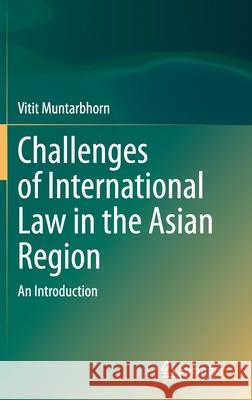Challenges of International Law in the Asian Region: An Introduction » książka
topmenu
Challenges of International Law in the Asian Region: An Introduction
ISBN-13: 9789811620461 / Angielski / Twarda / 2021 / 224 str.
Kategorie:
Kategorie BISAC:
Wydawca:
Springer
Język:
Angielski
ISBN-13:
9789811620461
Rok wydania:
2021
Wydanie:
2021
Ilość stron:
224
Waga:
0.52 kg
Wymiary:
23.39 x 15.6 x 1.6
Oprawa:
Twarda
Wolumenów:
01
Dodatkowe informacje:
Wydanie ilustrowane











